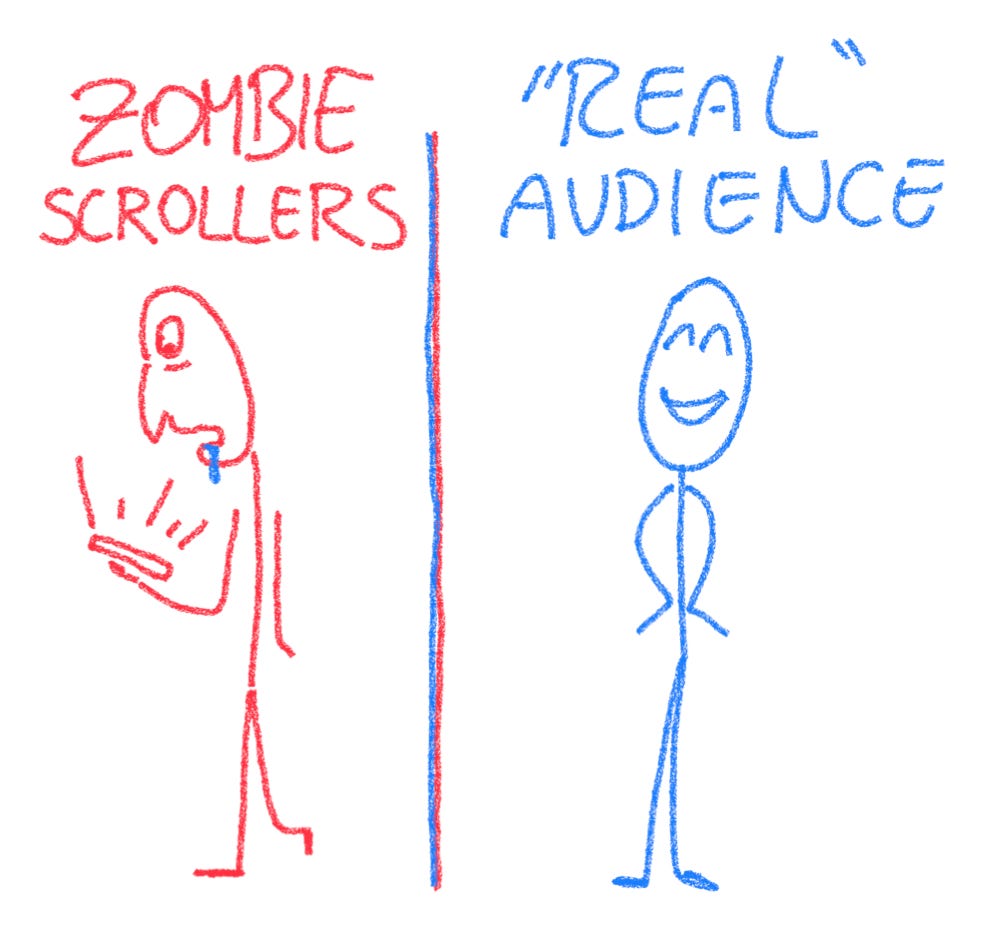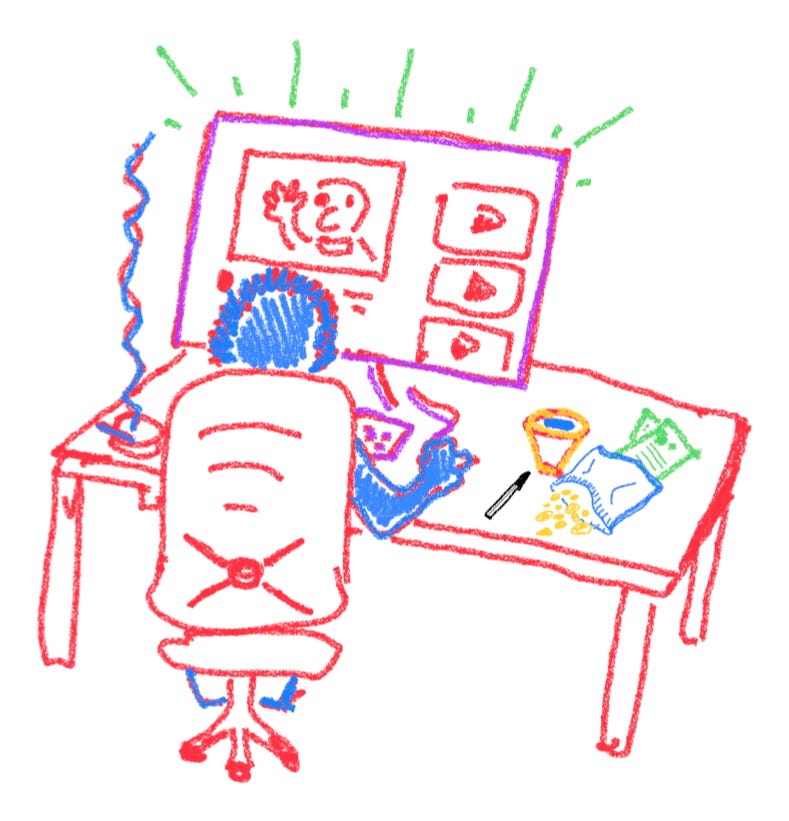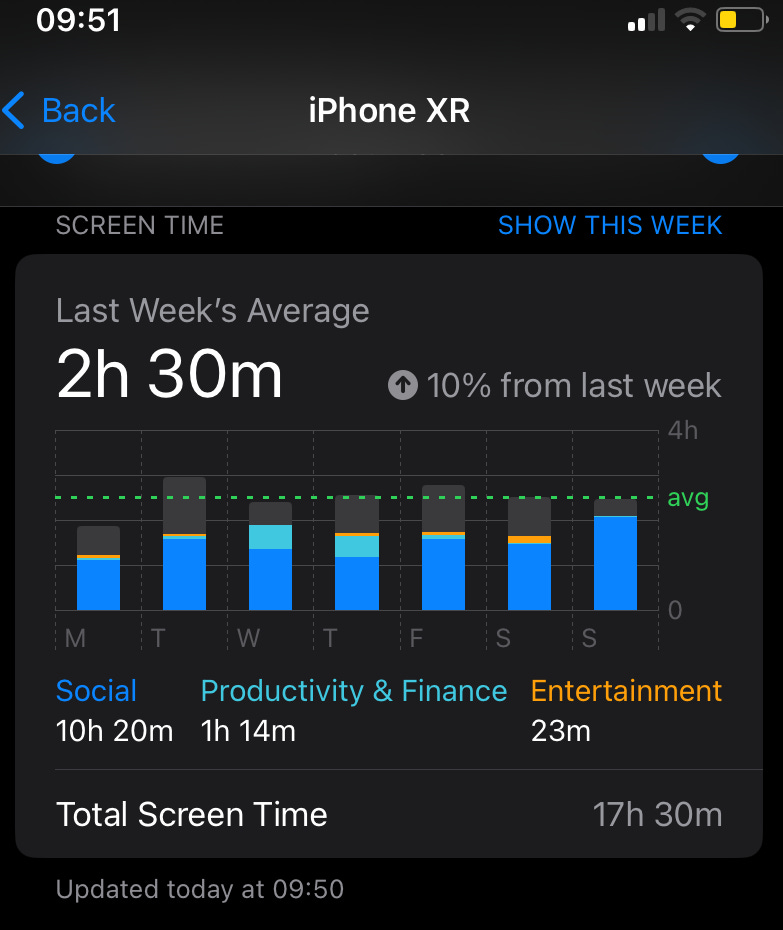Micro-influencers are the real winners of the AI age.
Why we are surrounded by zombies. How algorithms push creators to lower the bar and how this is shaping the way we spend our time.
As I wrote some days ago, online content is of sub-par quality, at best. Most of it is utter garbage with no sense of purpose. And I am not just talking about Reels or Shorts, but also online articles. Hopefully Substack, Medium and software like Ghost are changing things.
Even images are being affected by this phenomenon. And Gen AI is only going to make things more complicated. Hey, at least we can still spot an image created with Midjourney.
I was binge-reading some Medium articles late at night and I noticed that I ended up in an interesting rabbit hole. One where the defining undertone was a general aversion to AI, but not ChatGPT…?
Basically there’s a bunch of engineers out there that understand better than the rest of us what is going to happen in a few years, and ChatGPT does not seem to bother them that much.
I agree. A fundamental truth that we do not want to accept is that AI is going to get a lot better, but it’s likely not going to be LLMs that are going to revolutionize the way we design artificial thinking.
Today, LLMs can helps us:
Serve customers better
Recognize patterns in long, otherwise-daunting-to-read, texts
Improve our code
Browse the web more easily
What they cannot do is create interaction that is on par with a human. And this is not a good or a bad thing. It’s just the state of things.
How we spend our time
The truth is always depressing. We spend most of our time on social media, consuming content and sharing it with our closest friends and acquaintances.
It is how we spend our nights, early mornings, and every moment in between that makes us bored.
And while some of us are perfectly fine lurking in these digital spaces, others crave some form of human connection. This is evident.
Everyday, we spend more than 6 hours in front of our screens (source: the Independent). And for some people (writers like me, for instance) the figure may be even higher.
Granted, not all screen time is the same. Some of it is mandatory, even. But to check how much time you spend “didgeting” (just made up this new word, it’s a portmanteau of “digital” and “fidgeting”), go check your Screen time on your iPhone. Here’s mine:
Some people asked me how it could be so low. Full disclosure: I also own an iPad!
So we spend a lot of time on our phones, and there’s laptops, TVs, tablets, smart watches. It feels like we are now fully dependent on these technologies to live a modern life.
And this is not related to AI in any way. This happened before the public interest for GEN AI.
So what caused it?
Digital Dopamine
Boredom is the best ally of online Content Creators. It’s very hard to craft content that is capable of stimulating interesting conversations, or content that can make you change perspective on a specific issue.
On the other hand, it is a whole lot easier to create a video about some sort of “life hack” (I dread that word nowadays, tbh). A”life hack” video will trick your brain into thinking you are actually doing something useful for yourself.
There’s a nice book1 about how to write “riveting novels” that really captured my attention: the author suggests that we are hardwired to listen and learn from stories. This is the problem. Online content creators have hacked storytelling to generate content abominations incapable of transferring any real value to the viewer.
This is changing, fortunately, as more content creators understand that growth at any cost can alienate the interest of their “real” audience. The traffic will come from those that I call “Zombie Scrollers” (hey we all are ZSs at some point of the day) - but Zombies don’t care about that specific content, they seek the digital dopamine fix, not the content.

The “real audience” for a fishing channel is either composed of:
Fishing enthusiasts
People that are contemplating becoming a fishing enthusiast
Entrepreneurs active in the fishing niche
Other Fishing Content Creators
Why am I saying this? Can you not watch a fishing video and enjoy it?
Yes, yes you can, but you are never really going to subscribe to that channel, let alone buy some of the merchandise or products recommended by the Content Creator. You are effectively Zombie Watching something to kill boredom. And yes, I do this a lot, so I know what I am talking about.
Creating addictive content is great for keeping Zombie Scrollers in your audience. And this helps Creators, because they are in a state of constant battle with the algorithm to get their content out there. The higher the number of people consuming their content, the better the discoverability.
But this comes at the expense of engagement with the “real” audience. It is impossible to serve both Zombies and real people with the same type of content all the time.
Real Audiences seek:
Content Depth
Expertise
Out-of-the ordinary takes on specific topics
Authenticity
Credibility
And this is incompatible with what the Zombies are out for:
Short videos
Lists (3 ways to blah blah blah etc.)
Generic Content
Conspiracy theories
Emotional content
Celebrity Gossip
Daily Mail style news
You cannot serve them both.
Micro-influencers will inherit the internet
One thing I noticed when I was working at Amazon is that online sellers have a terrible time driving traffic to their products. And they spend an awful lot of money on big tech to get their products showcased on big tech’s platforms (which is incredible, they literally create demand for their products and then profit off of advertisers).
But these platforms would be worth nothing if it weren’t for content creators. All the money that is going to big tech could be spent on people creating informative content on specific niches. We want to watch real people, with real experiences, having real discussions.
Micro-influencers produce that type of content we all crave today (at least wen we are not in Zombie-mode).
If micro-influencers got more brand deals, they wouldn’t feel the pressure to attract Zombies to their channels, and could thus focus on delivering real value to their real audiences. It is hard to make a content creation operation financially viable without compromising quality.
By the way, this is why I left my Amazon job. I moved back to Rome and founded a company in the US. I am building a marketplace for brand deals for micro-influencers because I am tired of seeing the same pattern of behavior across all creators. They start with amazing, incredible content only to succumb to the algorithms’ pressure to keep the zombies happy.
There seems to be an ever growing supply of content creators, and people are more and more interested in micro-creators because, in the age of AI, coming across human-made, valuable content is becoming impossible.
The future is already here - let’s make it better
We are living in a world where machines are beginning to sound eerily human. Where people are detached from their basic needs thanks to society and technology. Where we live long enough to start asking ourselves very deep questions.
I recently read that in Victorian England, lower class people (they were in fact, not even called “working class” back then) had a slightly higher life expectancy than a healthy dog. This is still true in some countries, unfortunately.
We can’t help but accept that society is making us richer, healthier and smarter. This comes at a cost, it is now harder than ever to find a purpose in our lives.
I am convinced that humans see themselves as a reflection of the problems they can solve, be them personal or exogenous problems. Yet it is scarily difficult to find a purpose in a job that forces you to spend 9 hours a day engaging in repetitive tasks. Some people enjoy the feeling of security this provides, but my closest friends share my view, and I think there’s a lot of people out there who cannot find their sense of purpose because the security of a job, of living a normal life, is really hard to pass on.
But now, the internet and new technologies make it exceptionally easy to share our thoughts and our experiences with the rest of the world.
Sure, most internet users act like Zombies, not really caring about your content when they scroll through it, but there’s an ever increasing number of people out there that decide to be loyal to micro-creators. They engage with them and they support them - because they realize that these are real people, making an effort to create valuable content.
And this is also why I don’t write articles with ChatGPT. What good is an article if it’s written by a machine? I believe that humans should come before algorithms and technology. We create algorithms to help us, not the other way around.
The future of work will be more and more about experiences, content creation, art and creative takes on STEM and hard technologies. In a world where programming becomes easier, more and more people can become a product designer (this does not mean, in any way, that you will learn Kubernetes on the fly). This is the inescapable beauty of AI. AI is being developed to help people, not to make them useless - and this is splendid.
We will change the way we think. We will change the way we dream about work.
I know we will :)
The only thing that matters is determination.
The book is “Story Genius” by Lisa Cron.




